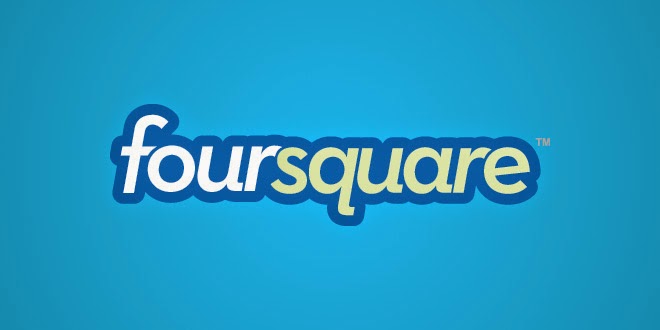I have had the privilege of reading the book- Product Strategy for high-Technology Companies not too long ago and would vouch that though this book was originally written a while back and has some examples which may seem old but it sheds some of the valuable insights into high technology (including Software) product strategy. If one tries to think a bit deeper it will not be as hard to find parallels with today's IT world.
Shifting gears a bit and speaking about one of the recent interviews of Mark Zukerberg where he mentioned about the need for Facebook to create a single-purpose first-class experiences to capture the mobile user's attention. To understand what Zukerberg really means by this statement, i would really want to go back and quote a some of the stuff from one of the articles i earlier wrote for Techwell.
Facebook's monolithic design in desktops spells trouble in mobiles:
who access it via a mobile device. Facebook more or less retains its monopoly of desktop users for meeting their social networking needs, but retaining mobile users poses a real challenge. As mentioned in an Entrepreneur
"On the phone, it's easy to hit the home button, then open a new app, like WhatsApp, Snapchat, or Instagram...Want to just see photos from friends? Go to Instagram, or Snapchat. Want to just exchange messages with friends? WhatsApp, or Snapchat work. Want to play games? Candy Crush, Angry Birds, QuizUp, or whatever you want are available."
Though Facebook is still a monolithic application, it now suddenly sees competition from relatively newer players. Facebook can easily retain its desktop user base because they use the site for social networking basics—such as sharing updates, posting pictures and videos, chatting, etc. As Zuckerberg explained, mobile users pose a different challenge. "I think on mobile, people want different things. Ease of access is so important. So is having the ability to control which things you get notifications for. And the real estate is so small."
What is Facebook thinking to solve its problems with mobile platforms ?- Emergence of unbundling as a product strategy:
One commonality between Facebook’s recent high-profile acquisitions (WhatsApp and Instagram) and the popularity of other apps—such as Snapchat—suggests that these are light apps focusing on just one or two aspects of social networking. It is evident that the monolithic nature of Facebook's mobile app may not get the same level of users engaged as its desktop version. Unbundling the complexity in mobiles seems like a logical step forward for Facebook. What that means is having a much leaner feature-set on mobile platforms may work much better than having a cluttered app. So, here comes unbundling as a product strategy.
As much as the book on Product Strategy (that i mentioned earlier) spoke about "building" a product, combining unbundling with product strategy may sound like oxymoron. Its just interesting that this phenomenon is happening in the tech world around us.
Will Facebook's unbundling endeavor succeed ?
 A Harvard Business Review article suggests that- "Facebook enjoys three advantages over rivals: technological capabilities, economies of scale in its infrastructure, and most importantly, network effects."
A Harvard Business Review article suggests that- "Facebook enjoys three advantages over rivals: technological capabilities, economies of scale in its infrastructure, and most importantly, network effects."A network effect is characterized by the effect that one user of a good or service has on the value of that product to other people. When network effect is present, the value of a product or service is dependent on the number of others using it. The classic example is the telephone. The more people who own telephones, the more valuable the telephone is to each owner. This creates a positive externality because a user may purchase a telephone without intending to create value for other users, but does so in any case.
Facebook, with almost 1 billion plus user base and literally a single stop website for social networking needs have been able to create unprecedented network effects.
Now, if Facebook unbundles its apps, will it be able to retain the network effects ? Considering Facebook's approach with Instagram and WhatsApp, one peculiar thing that comes to the fore is that it has not imposed the Facebook brand on these acquisitions, which means that they have retained their own identity. It is reflective of fact that Facebook now realizes that each social media segment has its own requirements and it is best served by uncomplicated focused apps with their own brand identity. For example, teens associates Facebook more as a brand that their parents uses and associates themselves more with brands such as WhatsApp, Snapchat etc. In this scenario, as the Harvard Business Review article suggests, Facebook may let go of some of the network effects but the thing that goes in their favor is that most of these independent apps have millions of their own users causing Network effect on its own.
Is Facebook alone considering unbundling as a strategy ?
Facebook inst alone in Unbundling foray. Foresquare recently announced its decision to split its mobile app into two for simplification sake. Dropbox announced Carousel an image-focused application separate from its main app. Google has brought its document and spreadsheet editing software out of the main Google Drive app.
Facebook under Mark Zukerberg realizes that to be relevant in today's business space, they will need to disrupt themselves faster than letting their competitors take charge. Unbundling strategy just reflects this thinking.
Images source:
http://www.amazon.in/Product-Strategy-McGrath/dp/0786301465/ref=sr_1_2?ie=UTF8&qid=1401028581&sr=8-2&keywords=product+strategy
http://www.iconarchive.com/show/simple-icons-by-danleech/facebook-icon.html
http://smartpei.typepad.com/robert_patersons_weblog/lego%20bricks.jpg
http://facebookadvanced.com/tool-lets-analyze-facebook-marketing-real-time/
http://skatter.com/2011/01/infographic-foursqare-in-2010/



2 comments:
Great article. Very informative. Thank you.
Quickr Unbundling itself- https://twitter.com/amitsomani/status/592128761505550336
Post a Comment